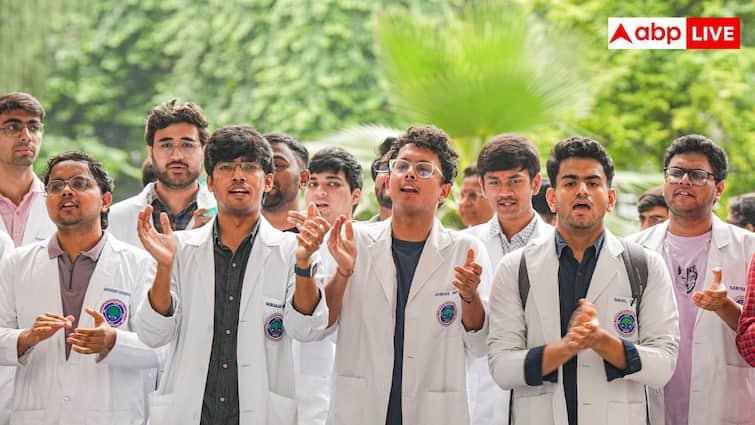If I wasn’t a Dalit: Tamil Nadu professor fights legal battle to get his university job and dignity back

Senrayaperumal is now fighting a legal battle with the university, which removed him from his job over a year ago. He travels to Madurai for court hearings and meetings with his lawyer, with a file full of certificates and the hope of getting reinstated.
Documenting a struggle
The People’s Archive of Rural India (PARI) has made a moving 28-minute documentary on Prof. P. Senrayaperumal and his legal struggle. Titled Punishing the Professor, the film, available on YouTube, has been directed and shot by Aayna, and is set to be screened at the Bangalore International Centre on August 31 at 4 p.m. The screening is free and open to the public.
Early challenges
Senrayaperumal, who holds a Ph.D in Art History from Madurai Kamaraj University, was the first in a long line of folk artists to be awarded a doctorate. The journey was long and difficult. At 13, he was forced to drop out of school.
Seated in his home in Soolapuram village, 60 km from Madurai, he recalls walking back home from school for the last time as a Class VII student. “I knew I would be asked to stop going to school,” he says. With eight mouths to feed, his father, K. Perumal, wanted him to join his folk theatre group, Soolapuram Sinna Set.
Preserving a dying art form
A Raja Rani Attam group performance in Madurai.
Perumal was an exponent of Raja Rani Attam, a folk art form popular in rural South Tamil Nadu. While not as ancient or closely-tied to temple rituals like Therukoothu, the art form faces stiff competition from the more popular Karagattam and Aadal Paadal dance shows based on film music.
A troupe typically consists of around 12 male performers in glittery costumes, who entertain crowds at temple festivals. Using song, dance, and theatre set to the beats of live percussion, they weave stories around family, values, and historical events. “The term ‘Raja Rani’ comes from the fact that each play features a Raja and a Rani, accompanied by a comedian,” says Senrayaperumal.
Male actors who play the Rani grow their hair and train to walk and talk like a woman. “My father played the Rani, and so did I,” he says. Performances take place at night in brightly lit village squares, continuing long past dawn. The folk art form has been carried forward by people from the Arunthathiyar Scheduled Caste community.
P. Senrayaperumal in costume for a Raja Rani Attam performance.
Though busy six months a year, travelling between villages, life is far from easy. “We used to walk long distances in the sun, carrying our costumes bundled in cloth atop our heads,” recalls Senrayaperumal. Now they can book taxis for events. “But the ₹35,000 we make per show is split among all the performers, and a large chunk goes towards travel,” he says. Workplace dignity is also often a rarity, with those playing the Rani sometimes facing sexual harassment from onlookers.
From stage to school
When there are no bookings, the troupe performs at funerals. It was at one such event that Senrayaperumal felt sad about how his life had turned out. “I had to dance at the funeral of the grandfather of a former schoolmate,” he says. “There were several boys and girls my age in the audience.” They were all in college, and he was embarrassed to face them in costume and make-up. That night, he made up his mind to continue his education. He was seized by a veri, a rage, to study.
After failing to take his Class VIII exams privately — they clashed with his shows — he completed a pre-foundation course at Madurai Kamaraj University, followed by two foundation courses (equivalent to Class X and Class XII). He then earned a B.A. and M.A. in History, followed by an M.Phil in Folk Performing Arts and a Ph.D in 2013. “My thesis was on Raja Rani Attam and its social impact,” he says.
With the troupe in Madurai
He juggled academics with shows, rehearsals, and pressure from his troupe to keep performing. Only after being appointed at Manonmaniam Sundaranar University’s Department of History through the SC(A) quota in 2016 could Senrayaperumal finally bury himself in books.
On his first day as assistant professor, he felt jittery. “But when I stood in front of my students, I realised I had no stage fear,” he says, crediting it to years of performing.
No happy ending
After eight years in academia, when he was due for a promotion as the Head of Department, Senrayaperumal began hearing rumours about his imminent removal. Letters were sent to other departments questioning his ‘irregular education’. “I received a letter informing me of my removal from service on March 13, 2024, without any discussion or chance to present my side of the story,” he says. “This despite the university syndicate scrutinising and verifying my certificates before my appointment.”
Prof. P Senrayaperumal hopes the judicial system will come through for him.
| Photo Credit:
Ashok R.
Senrayaperumal appealed his removal at the Madurai bench of the Madras High Court, which ruled in his favour, stating that under the UGC norms of 2010, he was eligible to work in a university since he held an M.A., M.Phil, and Ph.D. “I went back to work with a copy of the court order and a joining letter, only to be told that the Registrar planned to file an appeal,” he says. When contacted by The Hindu, the Registrar refused to comment.
Fighting caste bias
Without a monthly salary, Senrayaperumal is running out of funds. His four brothers and two sisters are his only source of support. “We are unable to see him suffer after working so hard to secure this job,” says P. Pilavadi, one of the brothers, who plays the comedian in the troupe. “We are not mere observers in this story, we are going through as much pain as he is.”
Senrayaperumal knows that even if he wins the legal battle, life at the university will not be the same. “Everyone will look at me with prejudice,” he says. “How will I be able to sit in my department, have tea at the canteen like before?” Even before the issue cropped up, many of his colleagues refused to interact much with him fearing censure from the higher-ups. For now, though, Senrayaperumal wishes to only focus on the legal proceedings.
“I have faith in our judiciary,” he says, hoping the legal system will work in his favour. “I’m grateful for the support of Hon’ble Chief Justice (Retd.) Dr. S. Muralidhar, who has volunteered to appear in court for me pro bono,” he says.
But the question that haunts him is, “Would they have done this to me if I wasn’t a Dalit?” He calls his removal “modern day casteism”.
Life has come full circle as Senrayaperumal has returned to Raja Rani Attam. “I need money to survive,” he says, adding, “I respect this art form, but I keep asking myself if this is growth.”
akila.k@thehindu.co.in
Discover more from News Hub
Subscribe to get the latest posts sent to your email.







